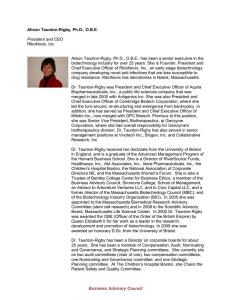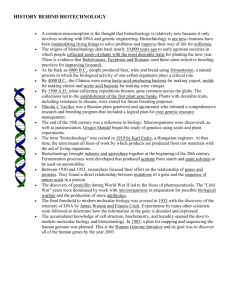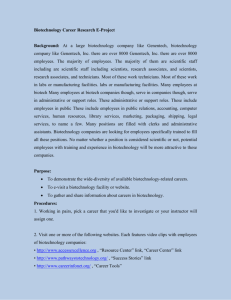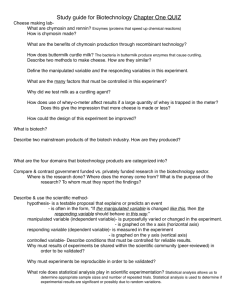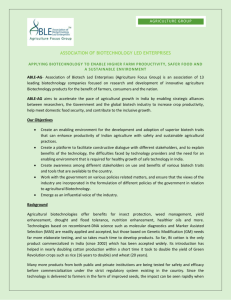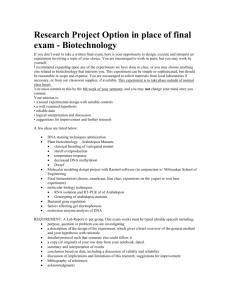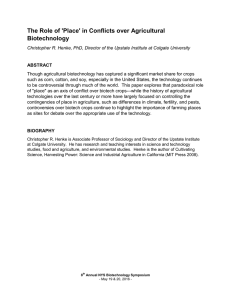Life Sciences Boom Accelerates Job Opportunities.
advertisement
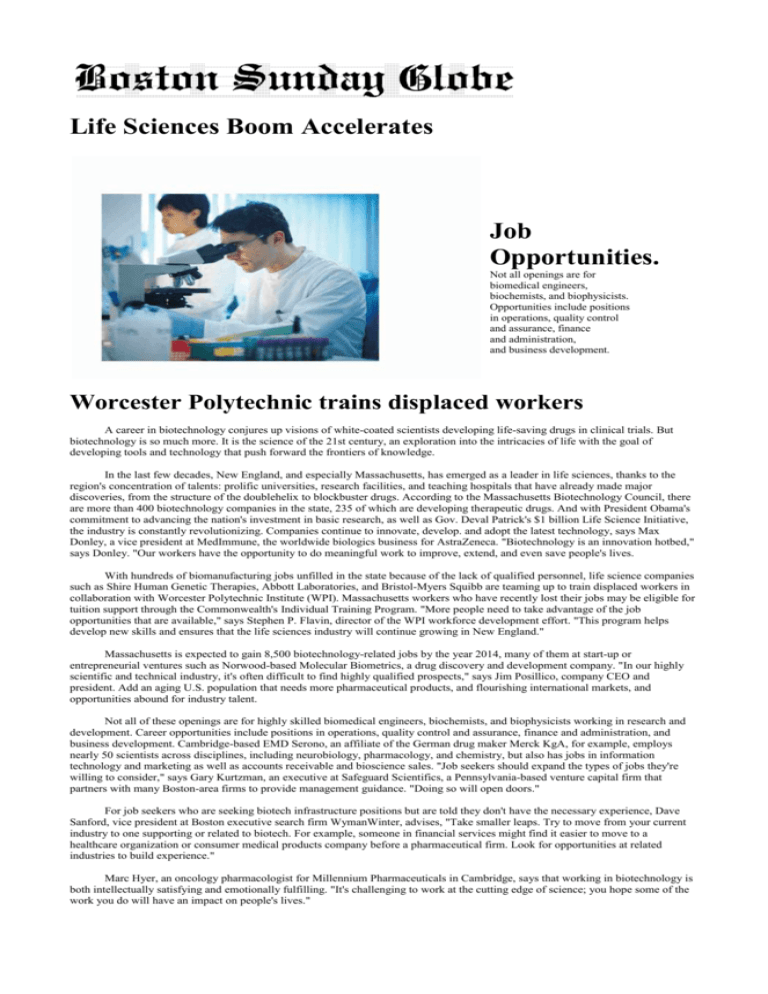
Life Sciences Boom Accelerates Job Opportunities. Not all openings are for biomedical engineers, biochemists, and biophysicists. Opportunities include positions in operations, quality control and assurance, finance and administration, and business development. Worcester Polytechnic trains displaced workers A career in biotechnology conjures up visions of white-coated scientists developing life-saving drugs in clinical trials. But biotechnology is so much more. It is the science of the 21st century, an exploration into the intricacies of life with the goal of developing tools and technology that push forward the frontiers of knowledge. In the last few decades, New England, and especially Massachusetts, has emerged as a leader in life sciences, thanks to the region's concentration of talents: prolific universities, research facilities, and teaching hospitals that have already made major discoveries, from the structure of the doublehelix to blockbuster drugs. According to the Massachusetts Biotechnology Council, there are more than 400 biotechnology companies in the state, 235 of which are developing therapeutic drugs. And with President Obama's commitment to advancing the nation's investment in basic research, as well as Gov. Deval Patrick's $1 billion Life Science Initiative, the industry is constantly revolutionizing. Companies continue to innovate, develop. and adopt the latest technology, says Max Donley, a vice president at MedImmune, the worldwide biologics business for AstraZeneca. "Biotechnology is an innovation hotbed," says Donley. "Our workers have the opportunity to do meaningful work to improve, extend, and even save people's lives. With hundreds of biomanufacturing jobs unfilled in the state because of the lack of qualified personnel, life science companies such as Shire Human Genetic Therapies, Abbott Laboratories, and Bristol-Myers Squibb are teaming up to train displaced workers in collaboration with Worcester Polytechnic Institute (WPI). Massachusetts workers who have recently lost their jobs may be eligible for tuition support through the Commonwealth's Individual Training Program. "More people need to take advantage of the job opportunities that are available," says Stephen P. Flavin, director of the WPI workforce development effort. "This program helps develop new skills and ensures that the life sciences industry will continue growing in New England." Massachusetts is expected to gain 8,500 biotechnology-related jobs by the year 2014, many of them at start-up or entrepreneurial ventures such as Norwood-based Molecular Biometrics, a drug discovery and development company. "In our highly scientific and technical industry, it's often difficult to find highly qualified prospects," says Jim Posillico, company CEO and president. Add an aging U.S. population that needs more pharmaceutical products, and flourishing international markets, and opportunities abound for industry talent. Not all of these openings are for highly skilled biomedical engineers, biochemists, and biophysicists working in research and development. Career opportunities include positions in operations, quality control and assurance, finance and administration, and business development. Cambridge-based EMD Serono, an affiliate of the German drug maker Merck KgA, for example, employs nearly 50 scientists across disciplines, including neurobiology, pharmacology, and chemistry, but also has jobs in information technology and marketing as well as accounts receivable and bioscience sales. "Job seekers should expand the types of jobs they're willing to consider," says Gary Kurtzman, an executive at Safeguard Scientifics, a Pennsylvania-based venture capital firm that partners with many Boston-area firms to provide management guidance. "Doing so will open doors." For job seekers who are seeking biotech infrastructure positions but are told they don't have the necessary experience, Dave Sanford, vice president at Boston executive search firm WymanWinter, advises, "Take smaller leaps. Try to move from your current industry to one supporting or related to biotech. For example, someone in financial services might find it easier to move to a healthcare organization or consumer medical products company before a pharmaceutical firm. Look for opportunities at related industries to build experience." Marc Hyer, an oncology pharmacologist for Millennium Pharmaceuticals in Cambridge, says that working in biotechnology is both intellectually satisfying and emotionally fulfilling. "It's challenging to work at the cutting edge of science; you hope some of the work you do will have an impact on people's lives."
